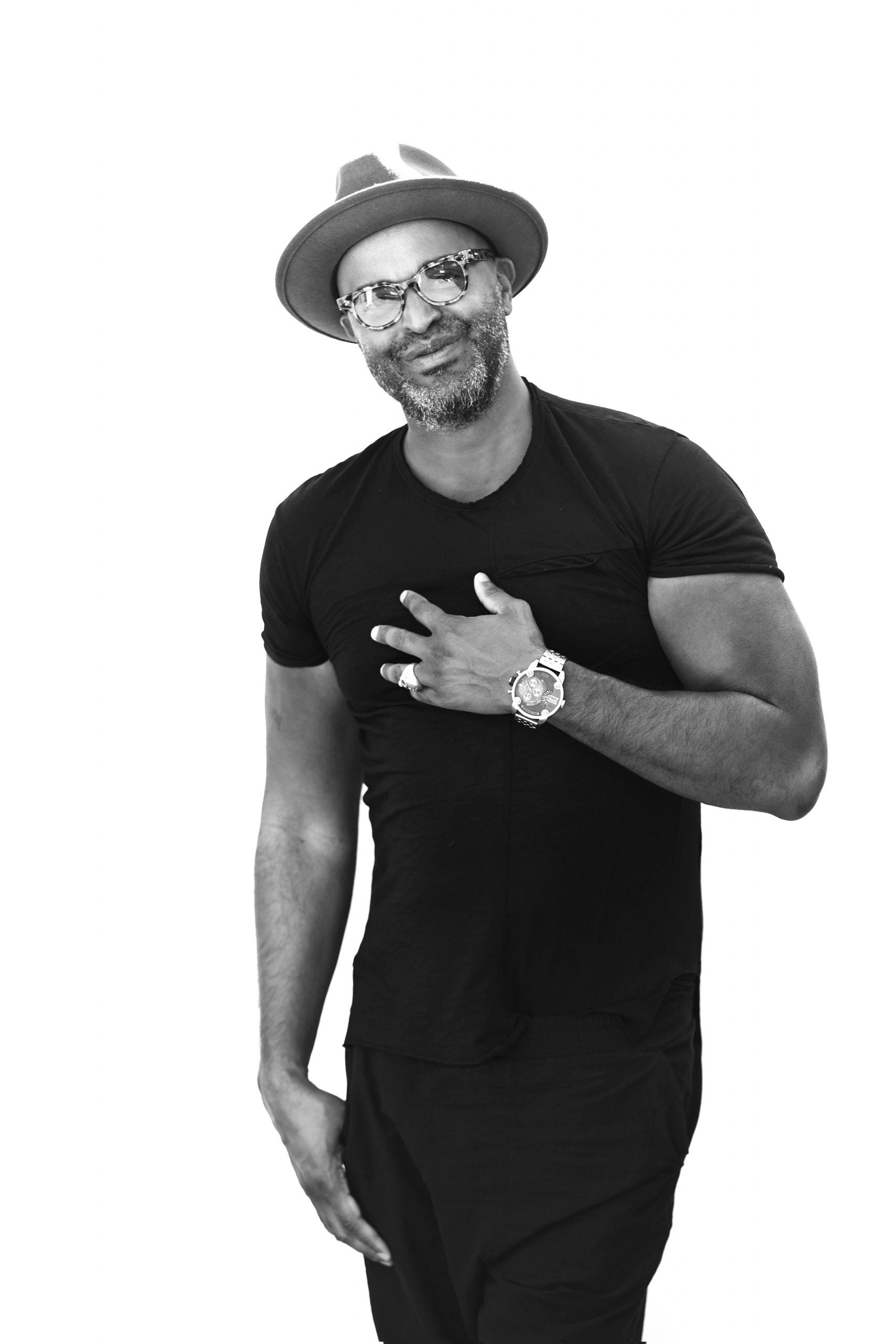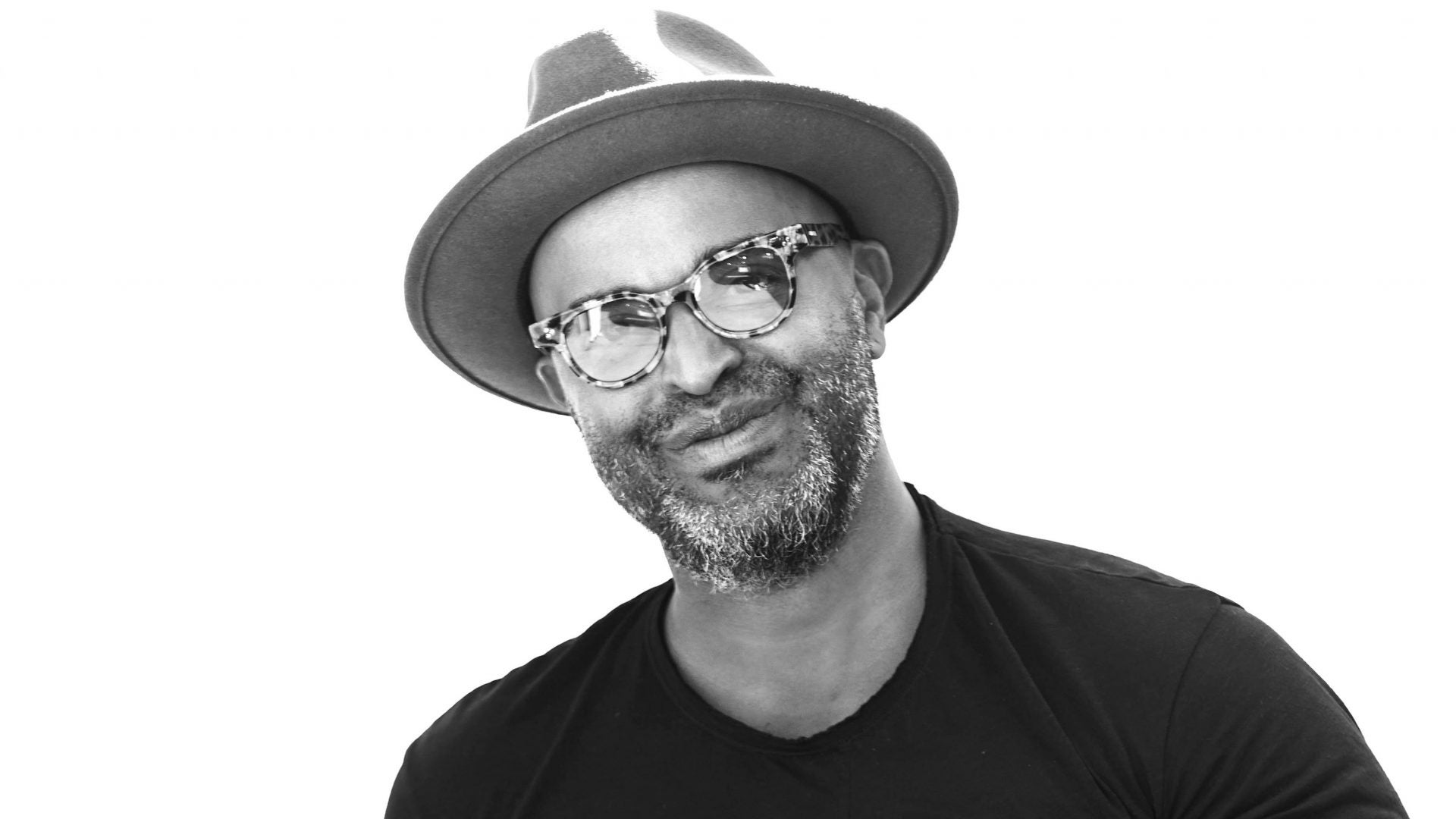Little Marvin's "Them": Obsessed With The '90s & Horror Secrets Revealed
What compels a creator to delve into the darkest corners of history, unearthing the terrors that linger beneath the surface of the American dream? The answer lies within the mind of Little Marvin, the visionary behind Amazon Prime Video's anthology series, "Them," a project that fearlessly confronts the specters of racism and societal injustice through the lens of horror.
Little Marvin, the driving force behind the chilling "Them," doesn't shy away from challenging narratives. In a candid conversation, he revealed the genesis of his controversial horror anthology. The series, which has garnered both acclaim and criticism, plunges viewers into unsettling explorations of the Black experience in America, utilizing the horror genre as a vehicle to expose the enduring legacy of systemic racism. He explained, "I knew artistically and creatively I wanted to put [the show] then," hinting at a deep-seated connection to the eras he chooses to depict.
| Category | Details |
|---|---|
| Full Name | Little Marvin (Last name not consistently available in the provided text) |
| Occupation | Writer, Producer, Showrunner |
| Known For | Creating the horror anthology series "Them" (Prime Video) |
| Notable Works | "Them," "The Time Is Now," and an untitled Teddy Pendergrass biopic. |
| Influences | Inspired by many things, which he has yet to fully reveal. |
| Challenges | Navigating controversial subject matter and facing criticism for the series. |
| Achievements | Creating and shepherding a successful horror anthology series. |
| Years Active | Information Not Provided |
| Production Company | Not directly stated, but co-produced with Lena Waithe. |
| Website/Reference | Amazon Prime Video - Them |
Marvins obsession with the past is palpable. He readily admits to being a "nerd of the 90s," a sentiment that informs his creative choices. The decision to set the second season of "Them" in 1991, specifically in the days following the Rodney King verdict, wasn't arbitrary. As he explained, "I wanted to explore the roots of the homeownership dream and the homeownership myth." This demonstrates his commitment to utilizing the historical context as a backdrop for the horrors his characters confront.
- Sophie Reade Bio Career Big Brother Fame Latest Updates
- Jahi Diallo Winston Bio Age Films Everything You Need To Know
The series' structure, a horror anthology, allows Marvin to explore different facets of the genre while tackling diverse societal issues. The first season, subtitled "The Covenant," transported viewers to the 1950s, focusing on a Black family's harrowing experiences in a white neighborhood. This approach, with varying characters and locations each season, provides a platform to address racism, prejudice, and the pervasive nature of fear.
The second season, which premiered on April 25, 2024, ventures into the unsettling landscape of 1992 Los Angeles, specifically in the wake of the Rodney King verdict. The setting is a crucible of racial tension, and the season is built around the acts of a serial killer. Marvin's choice of this time and place wasn't random. He aimed to reflect the societal anxieties of the time, exploring how systemic injustices create the conditions for both overt violence and insidious psychological torment.
Them doesn't shy away from the difficult truths. The series isn't just about jump scares; it's about the enduring impact of racism, the insidious ways it infiltrates everyday life, and the psychological toll it takes on those who experience it. This deliberate emphasis places "Them" in conversation with other works, such as Jordan Peele's "Get Out" and "Us," and Misha Green's "Lovecraft Country," which are similarly dedicated to exploring race through genre storytelling.
However, Marvin is careful to differentiate his work. He argues that the similarities between "Them" and these other projects don't make his series a copycat. Instead, he views it as part of a broader trend in which Black creators are using genre storytelling to provide nuanced and unflinching examinations of the Black experience. This perspective underscores the importance of diverse voices in shaping cultural narratives, with each project bringing a unique perspective to bear on the same core issues.
In conversation with Decider, Marvin shed further light on his creative process and his vision for the series. He articulated his unwavering belief in the project, welcoming criticism and embracing the opportunity to engage with audiences. When asked about the prospect of a third season, he enthusiastically affirmed his commitment to the project, stating that he, "1,000% have hopes and dreams" for its future.
The series has garnered a devoted audience, and the performances have been widely praised. Deborah Ayorinde, who delivered a compelling performance in the first season, returns in a new lead role for the second season. The ensemble cast features a blend of established actors and emerging talent, including Ashley Thomas, Alison Pill, Pam Grier, Luke James, Joshua J. Williams, and Jeremy Bobb. Their collective talent contributes to the immersive quality of the show, drawing viewers into its intense narratives.
Marvins inspiration draws from various sources. As the series has unfolded, it has become clear that his deep fascination with the societal anxieties and historical realities provides the building blocks of his horror. He uses these historical and cultural moments as fertile ground for creating suspense and exploring the psychological toll of racism.
The little marvins scope makes exploring fun and easy, exciting both boys and girls with a look into the tiny world.Perfect for young science fans looking for adventure.
In the second season, the setting is Los Angeles in 1992, which gives Marvin another opportunity to intertwine the social and the supernatural. This season, with a serial killer at its heart, promises to be a chilling exploration of the intersection of racial tension, systemic injustice, and the persistent specter of fear.
Little Marvins vision has been supported by the creative input of Lena Waithe, who executive produces the series. The collaborative environment has resulted in a project that is both technically proficient and emotionally resonant. Marvin has stated that he hopes to develop the project further, hinting at more eerie tales and a deeper exploration of the terrors that shape American history.
Marvin's approach to horror is not about cheap thrills; it's about using the genre to examine the human condition. He delves into the roots of fear, unearthing the historical and social forces that create it. This commitment has established "Them" as a groundbreaking series, one that challenges viewers to confront uncomfortable truths and acknowledge the enduring impact of the past.
The series also features contributions from many talented actors. One standout performance in the second season is from Joshua J. Williams, who shared the screen with the legendary Pam Grier, who portrays his grandmother. These performances, combined with Marvins creative vision, showcase the high caliber of the work and its capacity to generate significant discussion.
Marvins career is defined by his multifaceted skill set. He is a writer, a producer, and a showrunner a combination that provides him with unparalleled control over his creative endeavors. His work on Them demonstrates his ability to blend storytelling with a deep understanding of historical and social context.
Ultimately, "Them" is a testament to the power of storytelling. Marvin has created a show that is not only entertaining but also thought-provoking. It is a reminder that the past continues to shape the present, and that the horrors of history must be confronted if society is to move forward. In the words of Marvin, "I knew artistically and creatively I wanted to put [the show] then." His dedication and his vision have firmly established him as a significant voice in the world of television.
Article Recommendations
- Small Hands Facts Advantages More Unveiling The Details
- Ct Fletchers Workout Intense Training Fitness Secrets Revealed



Detail Author:
- Name : Ms. Monica Paucek IV
- Username : koepp.jeffrey
- Email : blarkin@hotmail.com
- Birthdate : 1973-12-23
- Address : 9357 Crist Causeway Kiehnton, ID 47031-4113
- Phone : 463-936-6216
- Company : Christiansen-Donnelly
- Job : Secretary
- Bio : Excepturi eum nostrum rem qui. Dolore est dolores aspernatur quod eum. Aut ut blanditiis qui temporibus praesentium.
Socials
linkedin:
- url : https://linkedin.com/in/hollie_mccullough
- username : hollie_mccullough
- bio : Dolorem vero excepturi saepe voluptatem sapiente.
- followers : 2369
- following : 2151
tiktok:
- url : https://tiktok.com/@mcculloughh
- username : mcculloughh
- bio : Voluptatem consequuntur asperiores qui magni tempora beatae.
- followers : 4849
- following : 1520
facebook:
- url : https://facebook.com/hollie_id
- username : hollie_id
- bio : Aut non mollitia minus saepe optio.
- followers : 6420
- following : 2356
instagram:
- url : https://instagram.com/hollie_real
- username : hollie_real
- bio : Et fugit eaque explicabo et molestiae. Voluptate earum temporibus odio eos minima.
- followers : 6809
- following : 1151